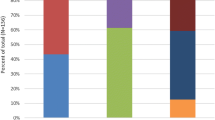Abstract
Passengers in rural areas are provided with little or no information regarding public transport disruptions. This can result in high levels of travel uncertainty with significant potential to affect travel behaviour. This paper, through 52 interviews, and 7 focus groups in rural areas in Scotland and England, explores the passenger experience, and the technology usage of individuals during disruption. The analysis indicates that a wide range of behavioural responses are evident, extending well beyond the choice of route or mode of transport. Further, we identify that the individual utilises various technologies (e.g. social media), and kinship networks to insulate against the effects of disruption. In addition, we present the co-design process of a set of technologies (a smartphone application and and an SMS service) that aim to improve the passenger exprience during disruption. This work provides an initial step towards understanding the interplay between disruption, passenger experience, and the design space for improving the passenger experience of individuals during disruption.
Chapter PDF
Similar content being viewed by others

Keywords
These keywords were added by machine and not by the authors. This process is experimental and the keywords may be updated as the learning algorithm improves.
References
Ebaugh, H.R., Curry, M.: Fictive kinship as social capital in new immigrant communities. Sociol. Perspectives 43(2), 189–209 (2000)
Lu, X., Gao, S., Ben-Elia, E.: Information impacts on route choice and learning behavior in a congested network: An experimental approach. In: Proc. 90th Annual Transportation Research Board Meeting (2011)
Papangelis, K., Corsar, D., Sripada, S., Beecroft, M., Nelson, J.D., Edwards, P., Velaga, N., Anable, J.: Examining the effects of disruption on travel behaviour in rural areas. In: Proc. 13th World Conference in Transport Research (2013b)
Papangelis, K., Velaga, N.R., Sripada, S., Beecroft, M., Nelson, J.D., Anable, J., Farrington, J.H.: Supporting rural public transport users during disruptions: The role of real time information. In: Proc. 92nd TRB Annual Meeting, Paper (2013a)
Scottish Executive Social Research, How to Plan and Run Flexible and Demand Responsive Transport. A report by Derek Halden Consultancy (2006) (web publication) ISBN 0 7559 6061 0, http://www.scotland.gov.uk/Publications/2006/05/22101418/0 (accessed on March 12, 2011)
Velaga, N.R., Nelson, J.D., Sripada, S., Edwards, P., Corsar, D., Sharma, N., Beecroft, M.: Development of a Hybrid Map-matching Algorithm for Rural Passenger Information Systems via Mobile Phones and Crowd-Sourcing. Journal of Computing in civil Engineering, ASCE (2012b) (in press), http://ascelibrary.org/doi/pdf/10.1061/ASCECP.1943-5487.0000238
Velaga, N.R., Nelson, J.D., Wright, S.D., Farrington, J.H.: The Potential Role of Flexible Transport Services in Filling Gaps in Rural Public Transport Provision. Journal of Public Transportation 15(1), 33–53 (2012a)
Watkins, K.E., Ferris, B., Borning, A., Rutherford, G.S., Layton, D.: Where Is My Bus? Impact of mobile real-time information on the perceived and actual wait time of transit riders. Transportation Research Part A 45, 839–848 (2011)
Author information
Authors and Affiliations
Editor information
Editors and Affiliations
Rights and permissions
Copyright information
© 2013 Springer-Verlag Berlin Heidelberg
About this paper
Cite this paper
Papangelis, K., Sripada, S., Corsar, D., Velaga, N., Edwards, P., Nelson, J.D. (2013). Developing a Real Time Passenger Information System for Rural Areas. In: Yamamoto, S. (eds) Human Interface and the Management of Information. Information and Interaction for Health, Safety, Mobility and Complex Environments. HIMI 2013. Lecture Notes in Computer Science, vol 8017. Springer, Berlin, Heidelberg. https://doi.org/10.1007/978-3-642-39215-3_19
Download citation
DOI: https://doi.org/10.1007/978-3-642-39215-3_19
Publisher Name: Springer, Berlin, Heidelberg
Print ISBN: 978-3-642-39214-6
Online ISBN: 978-3-642-39215-3
eBook Packages: Computer ScienceComputer Science (R0)




